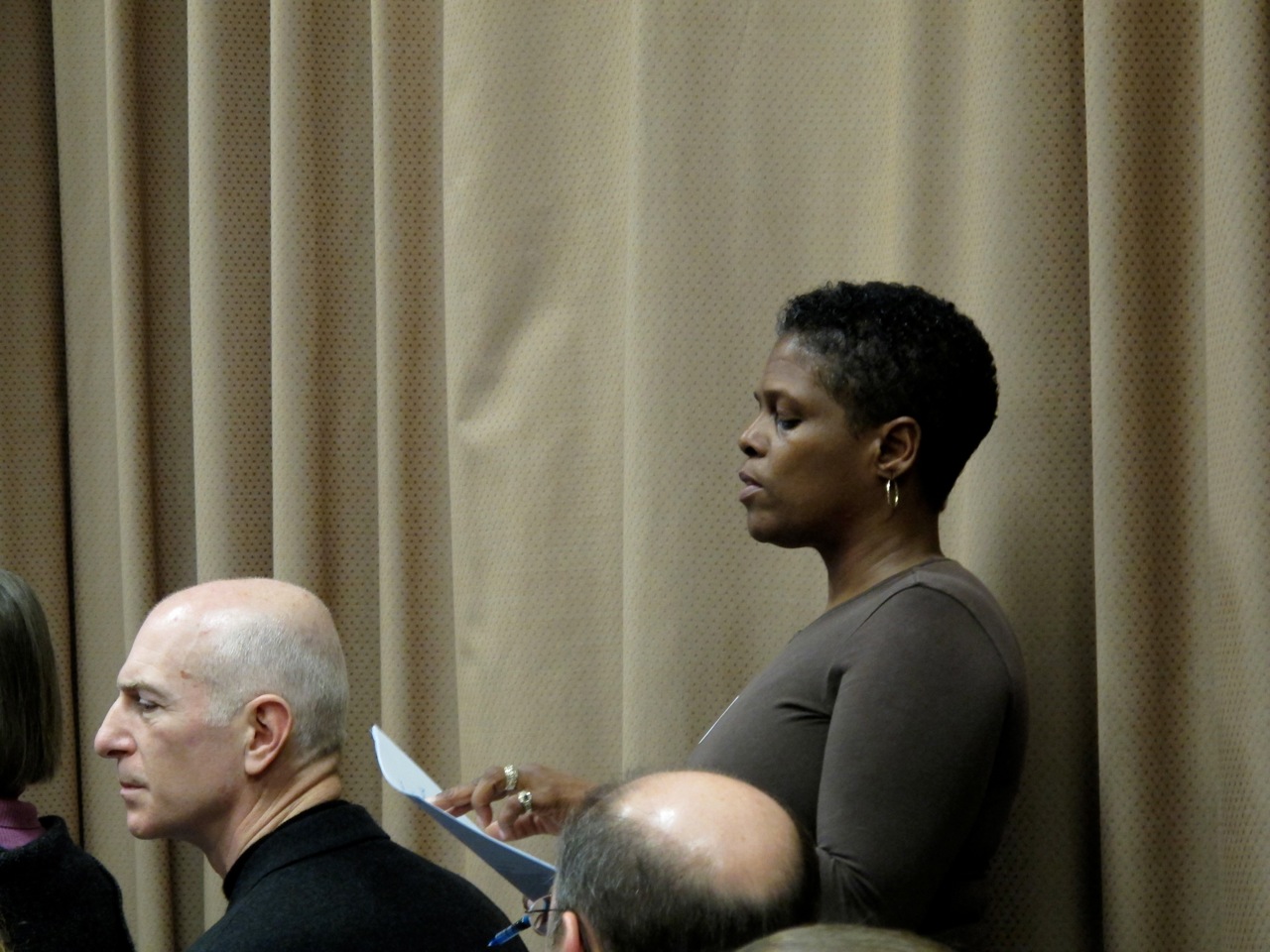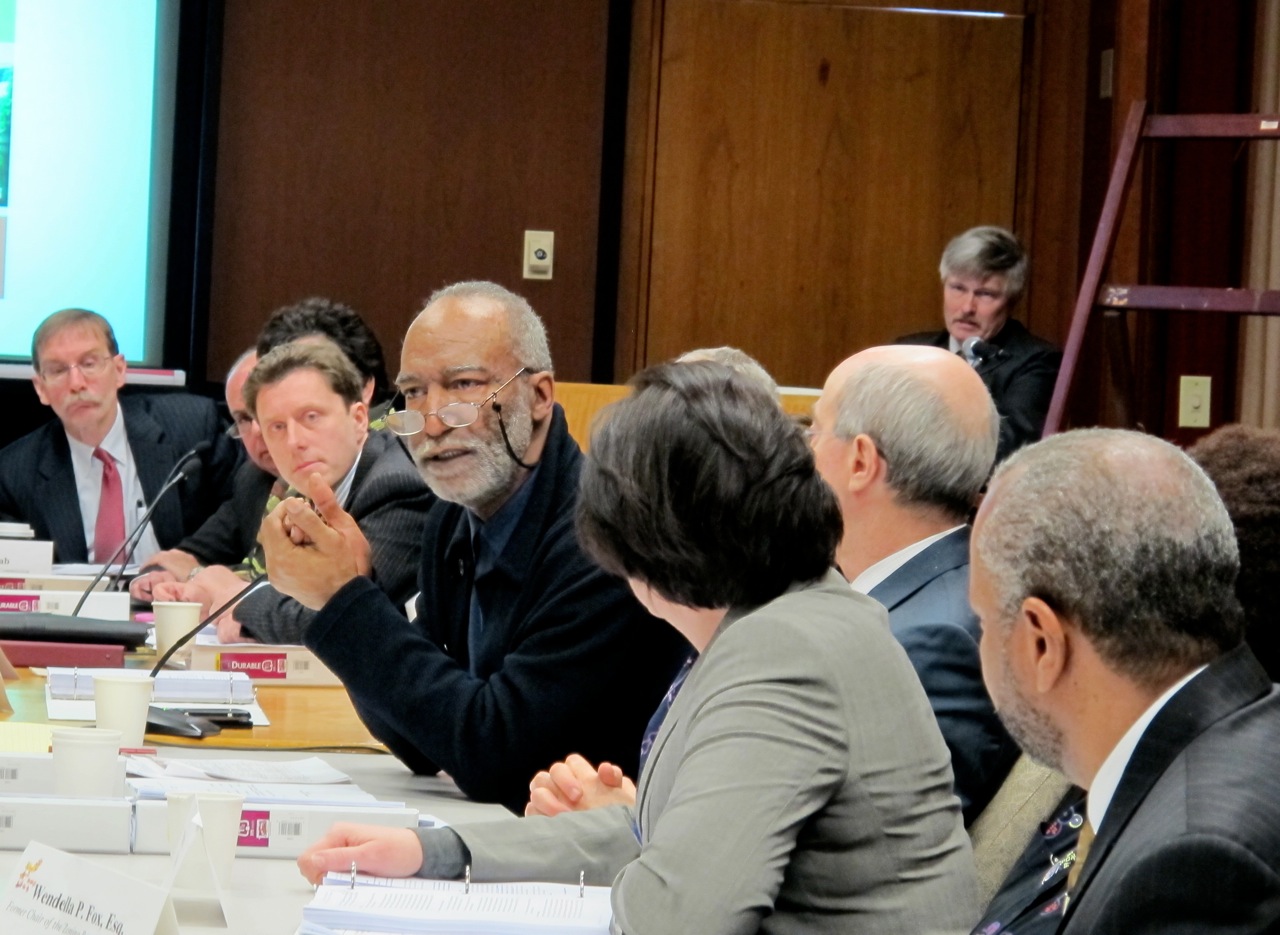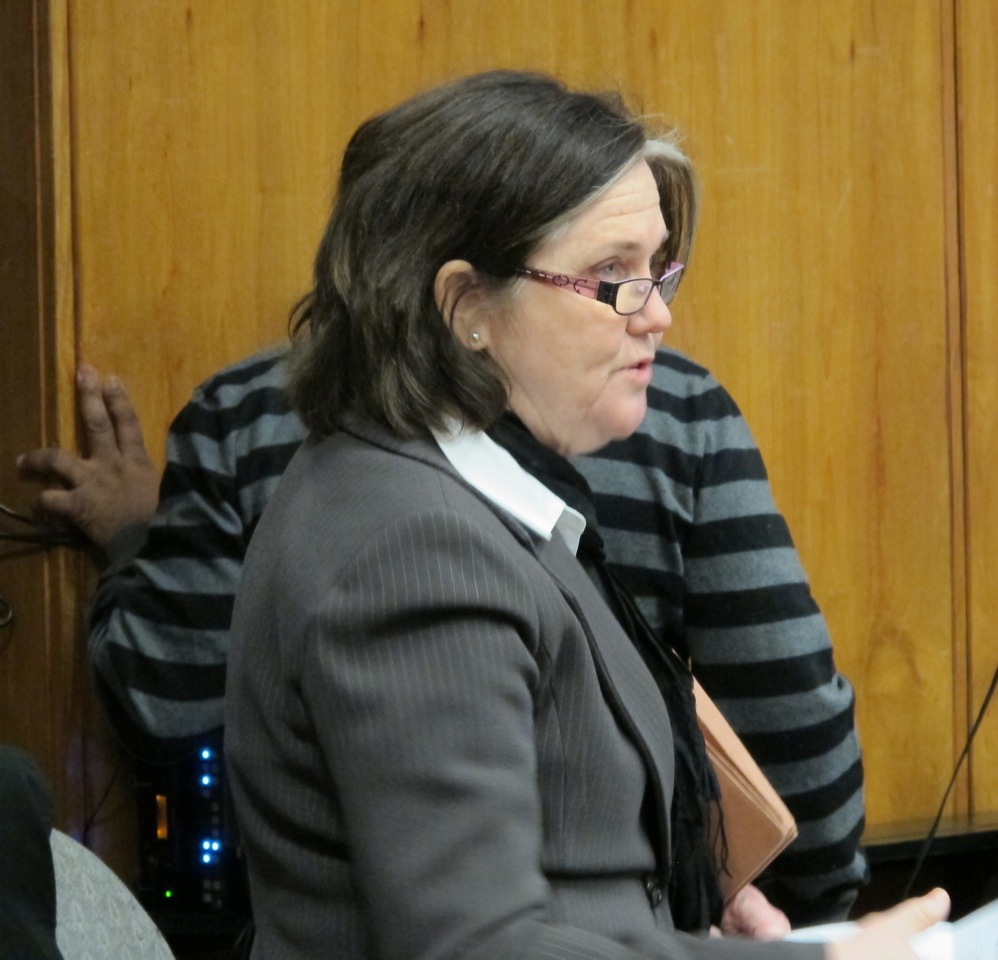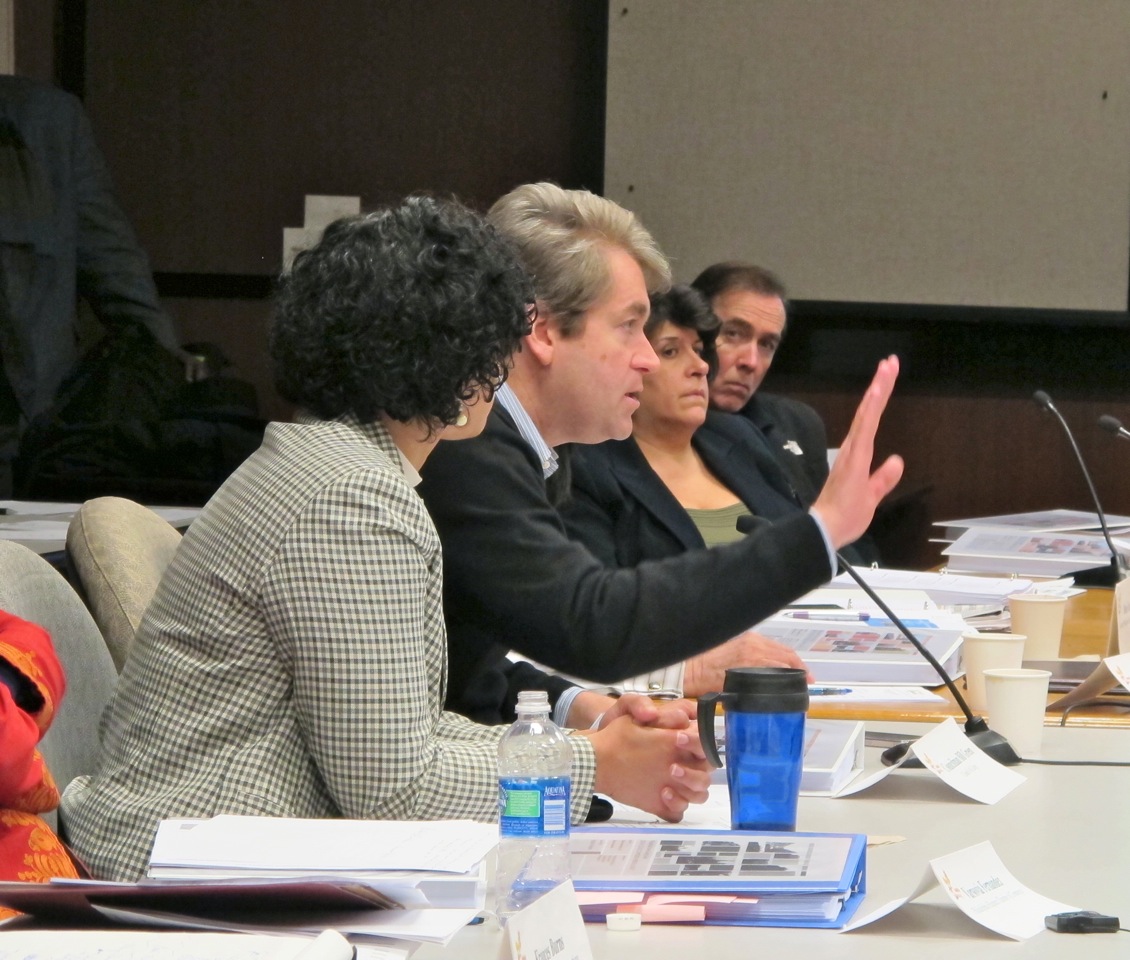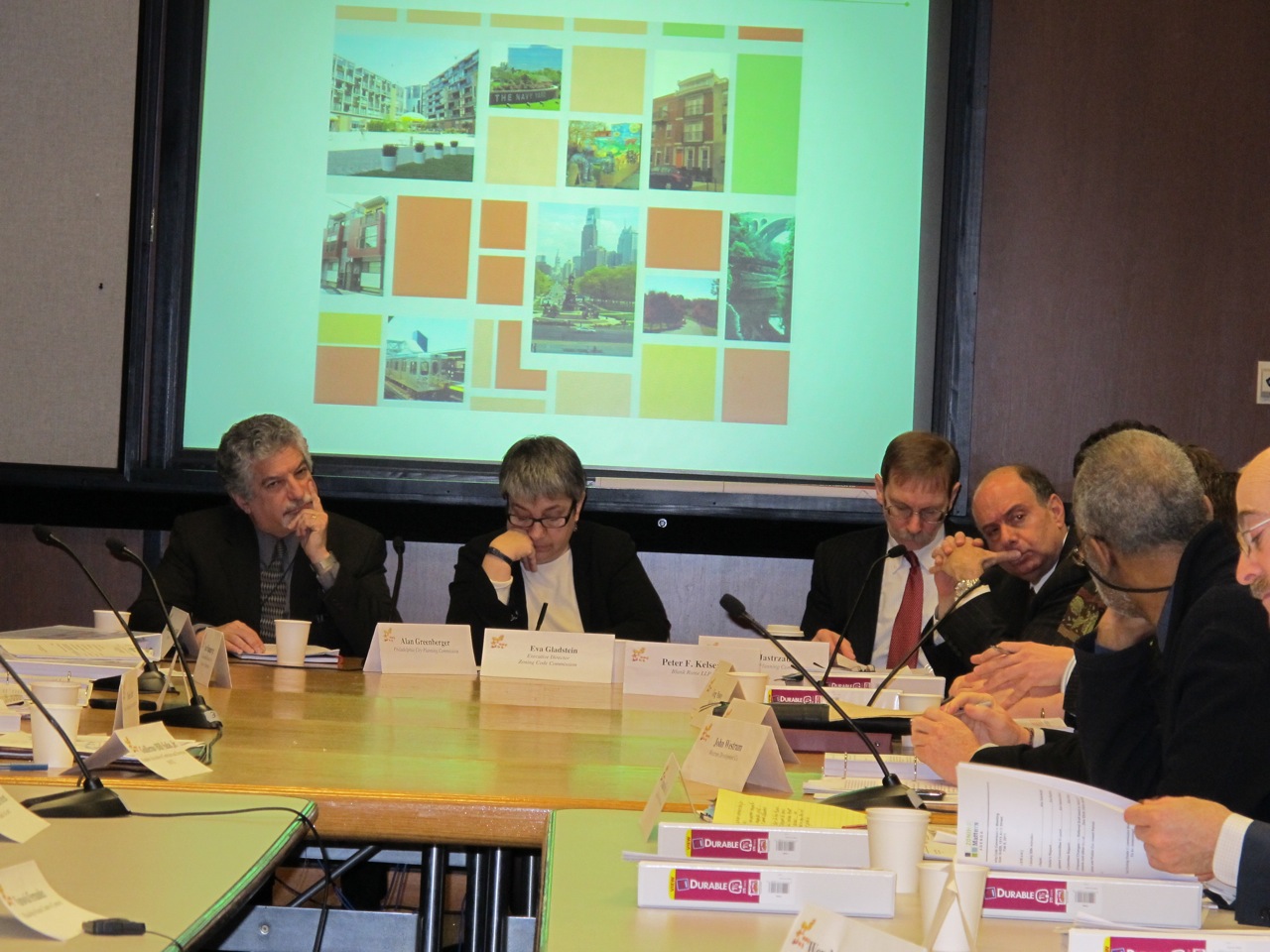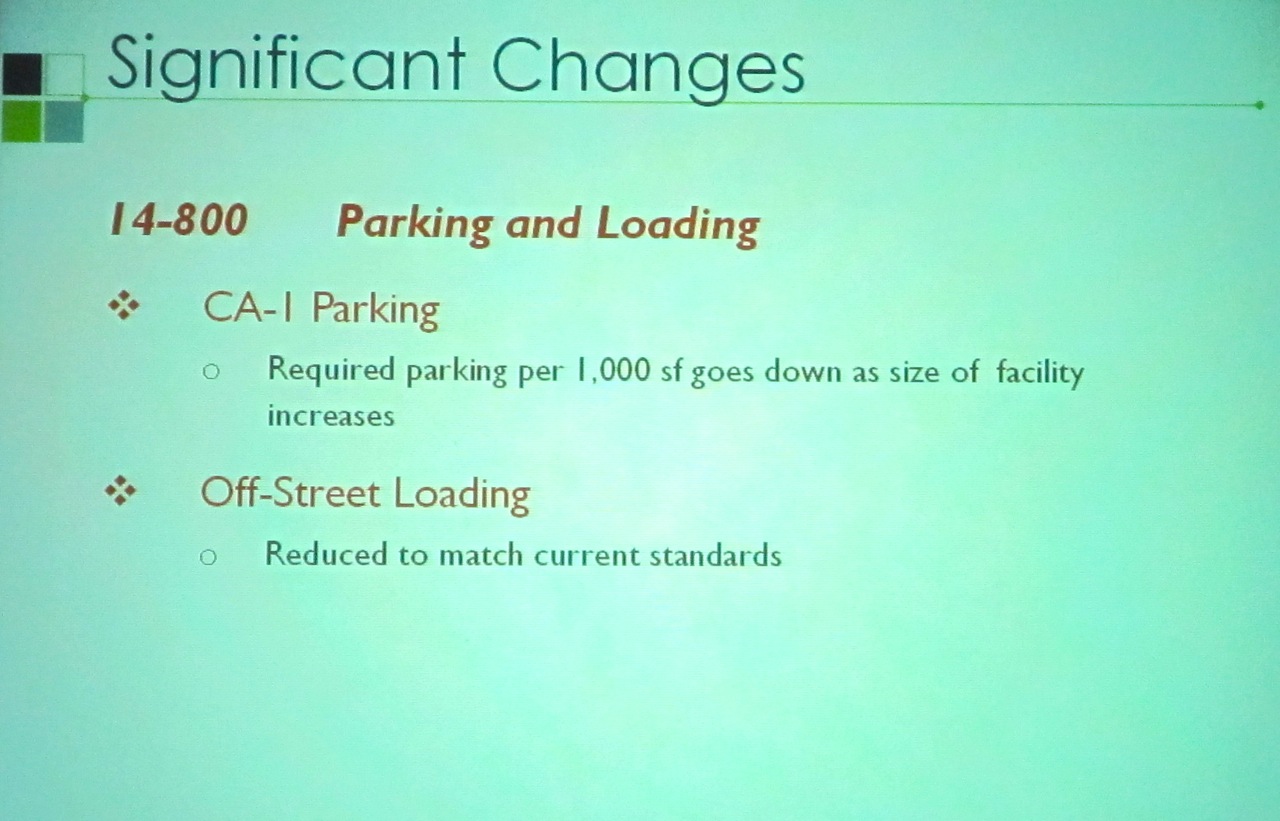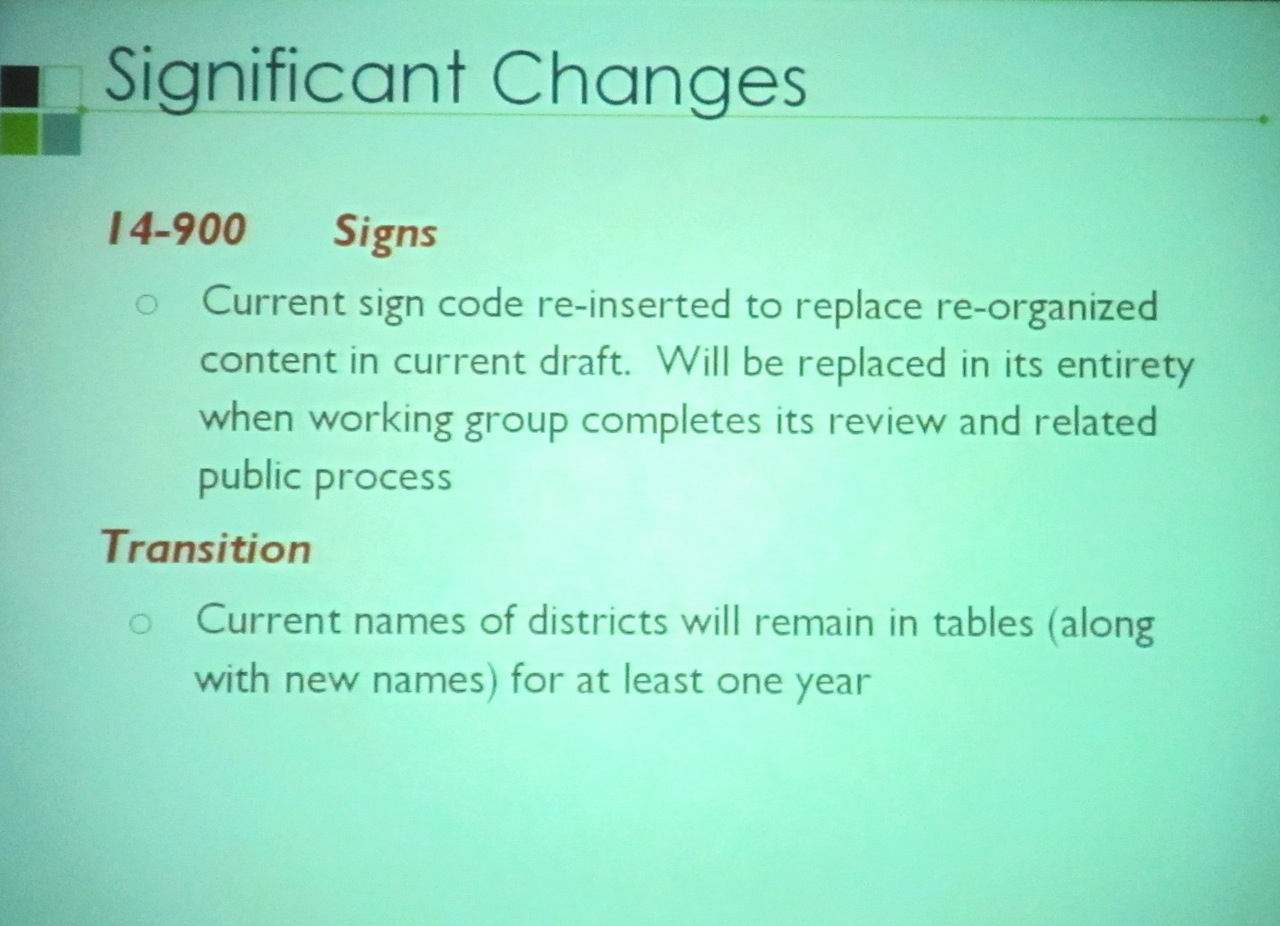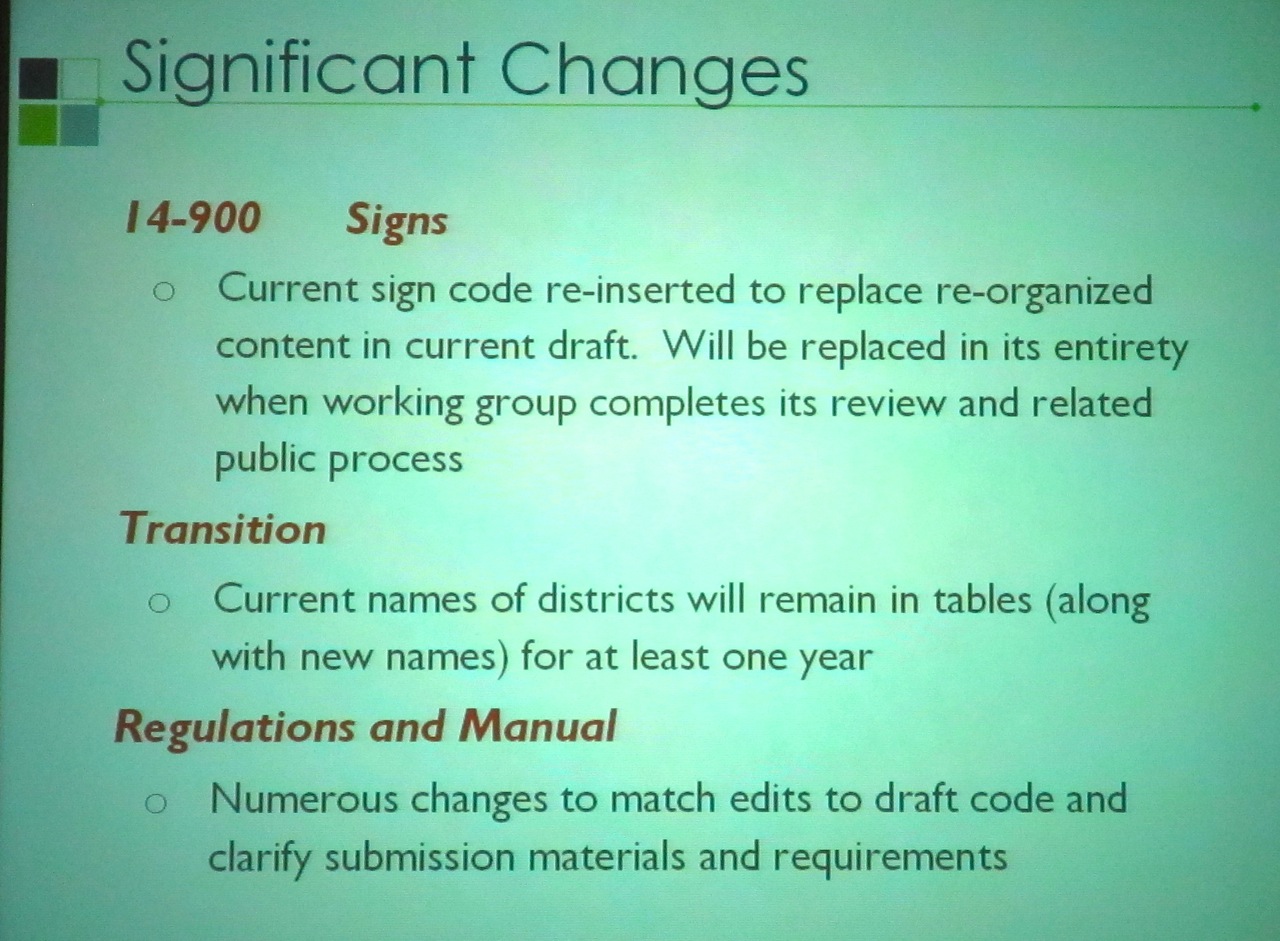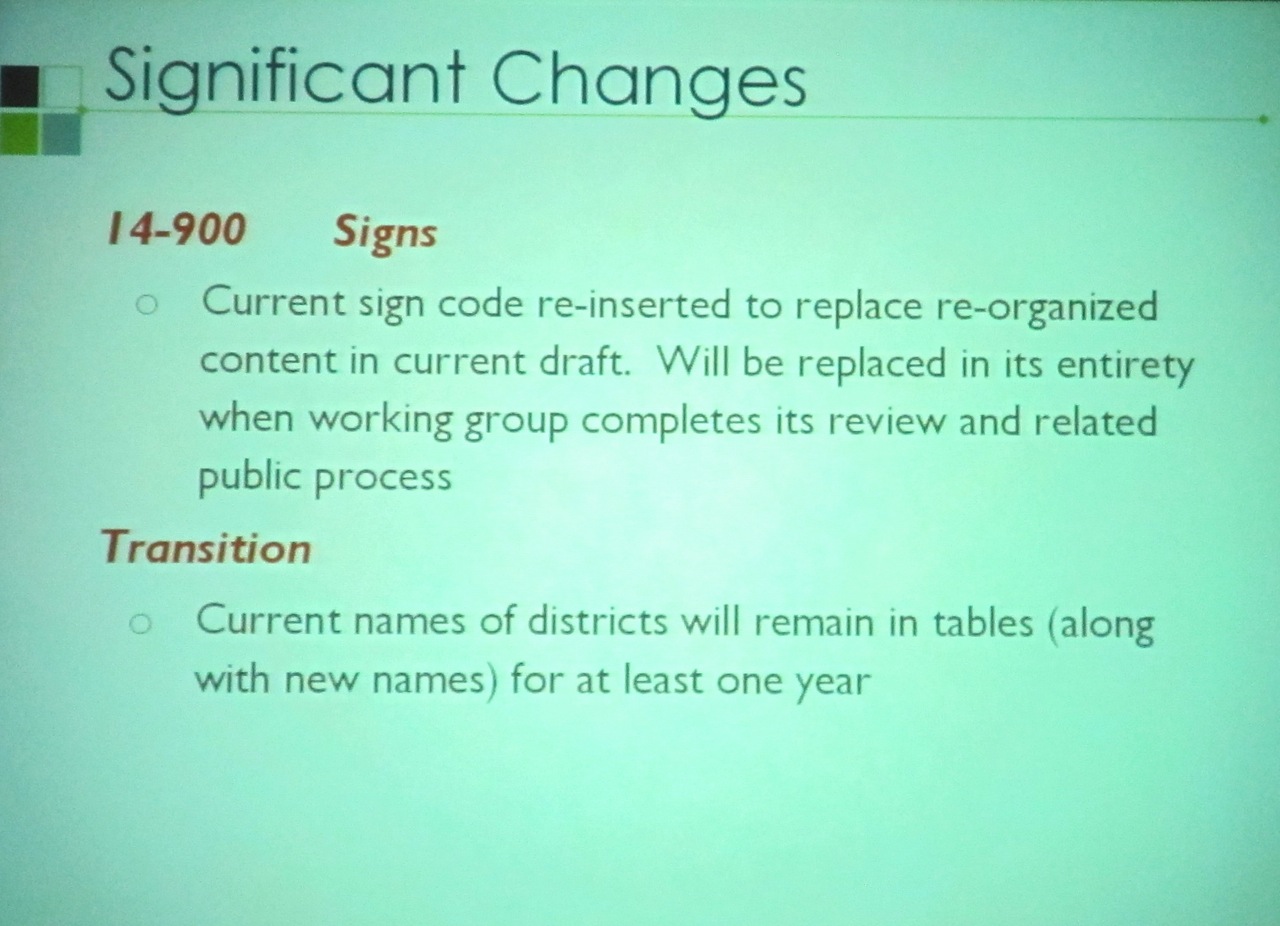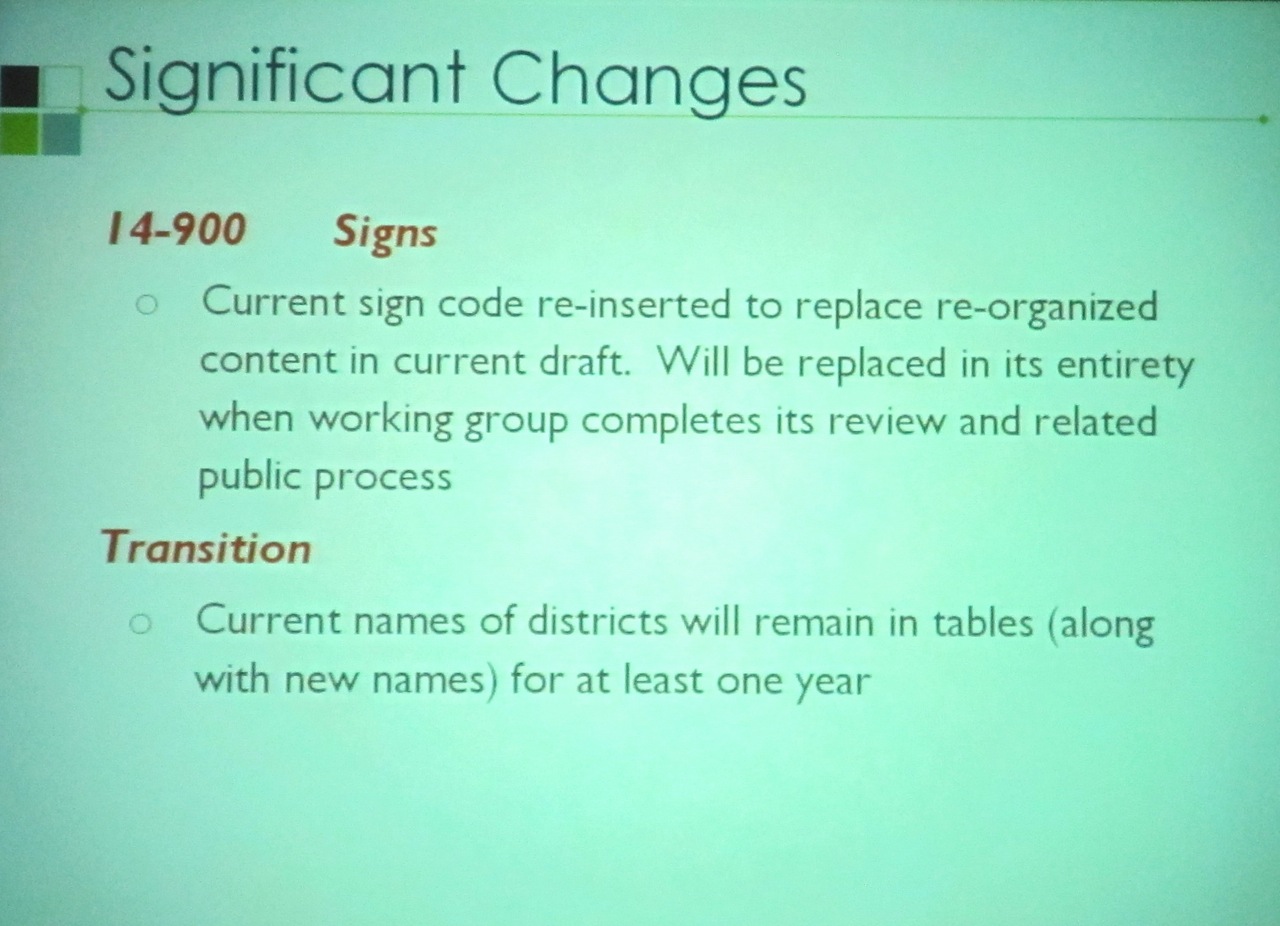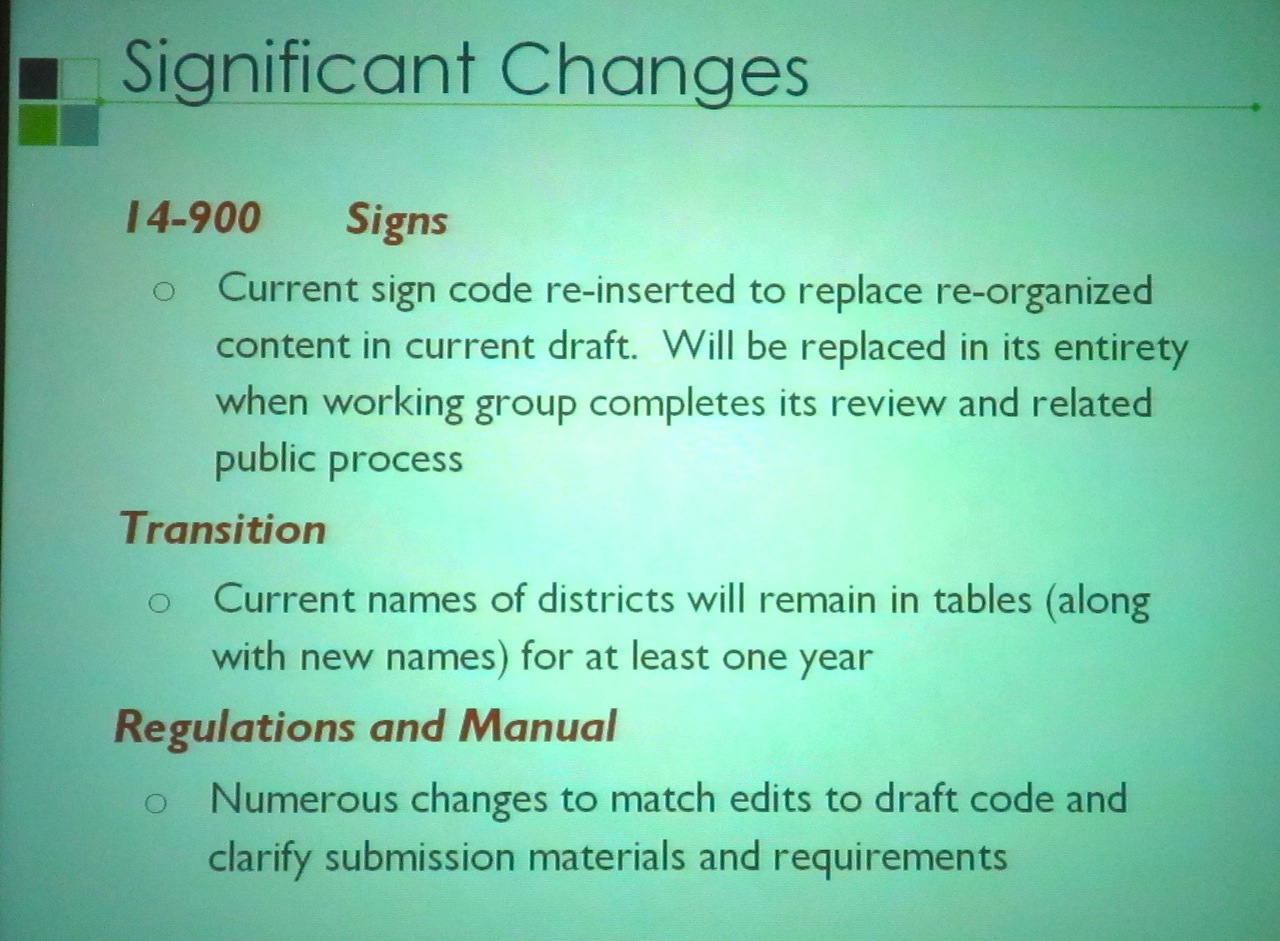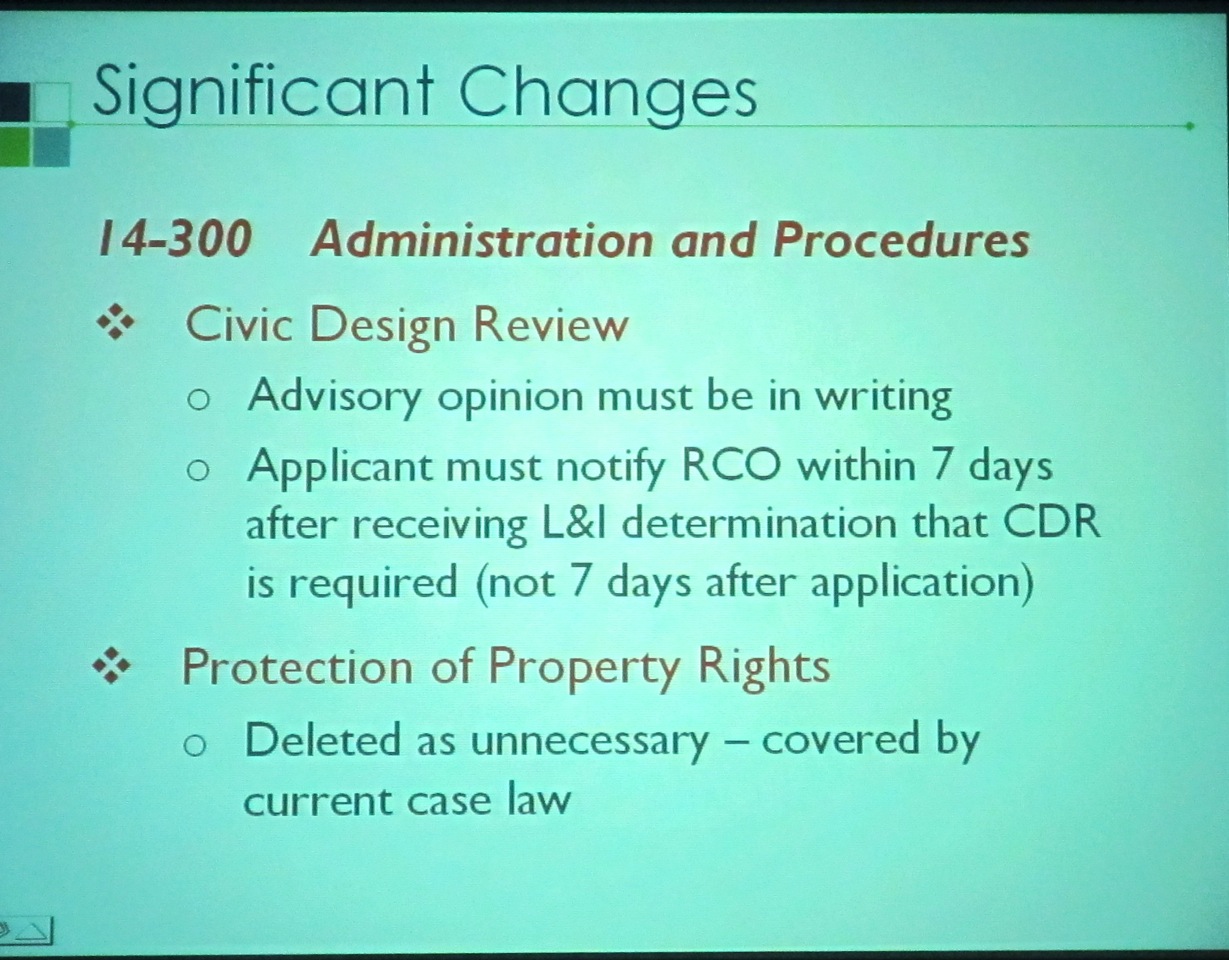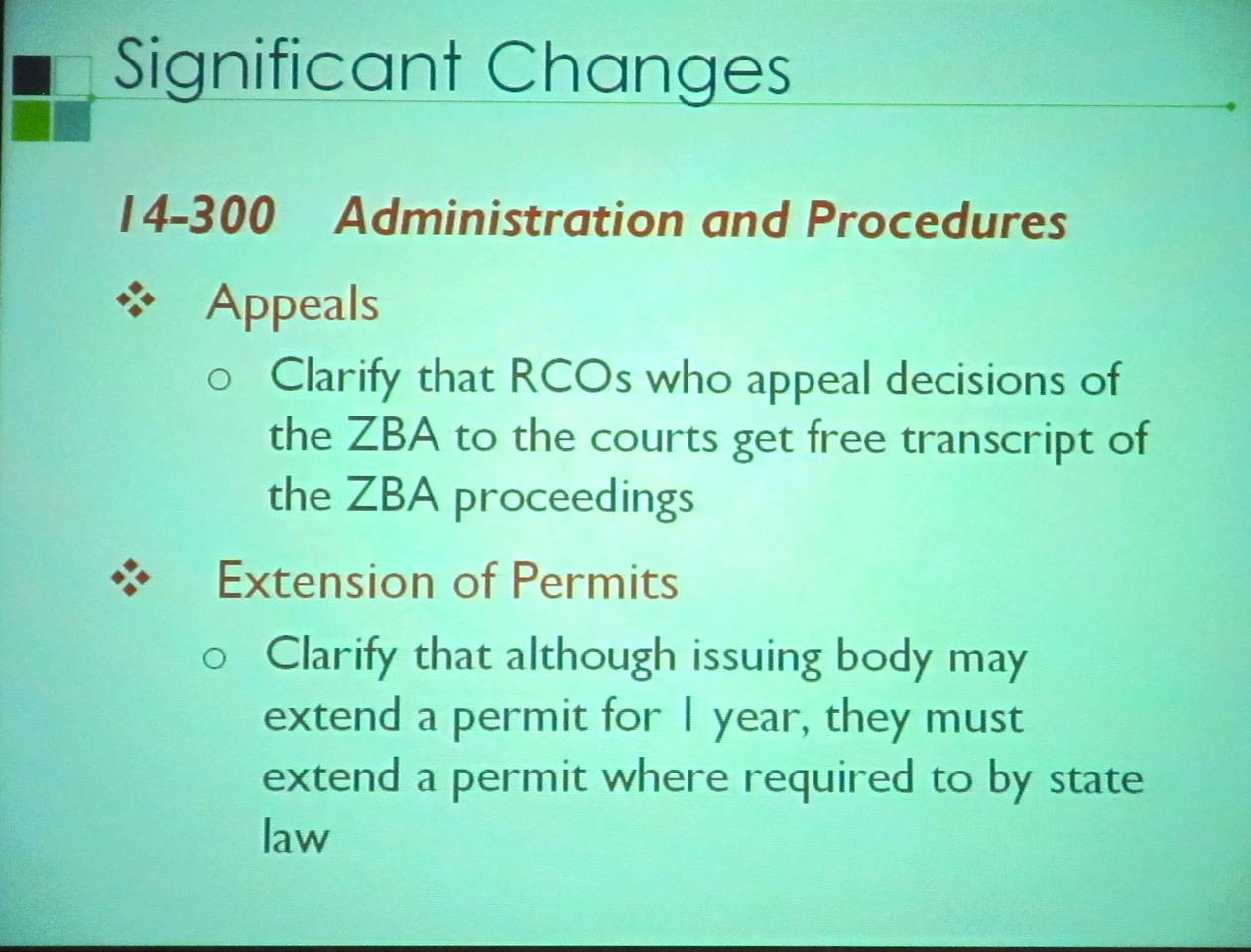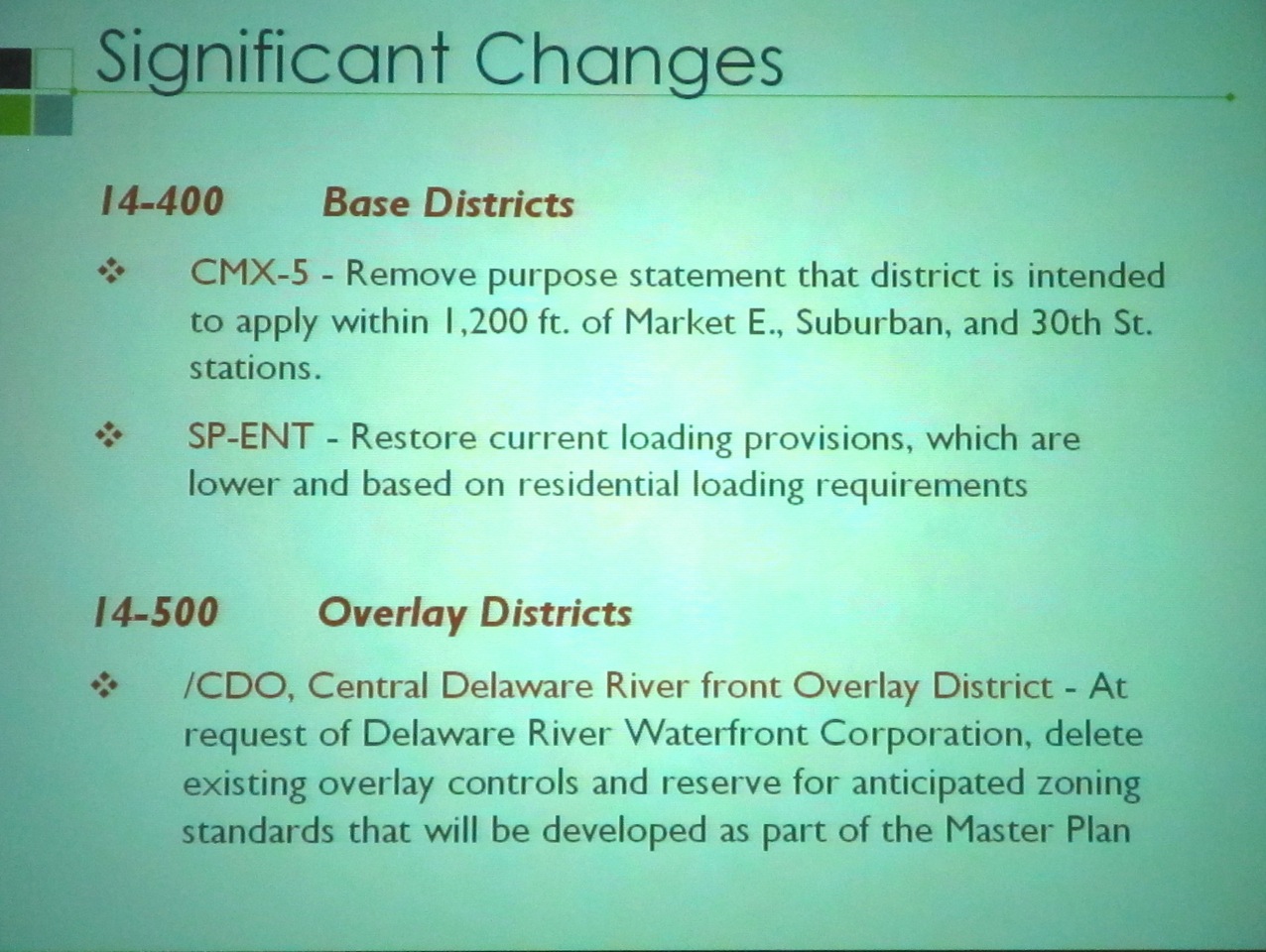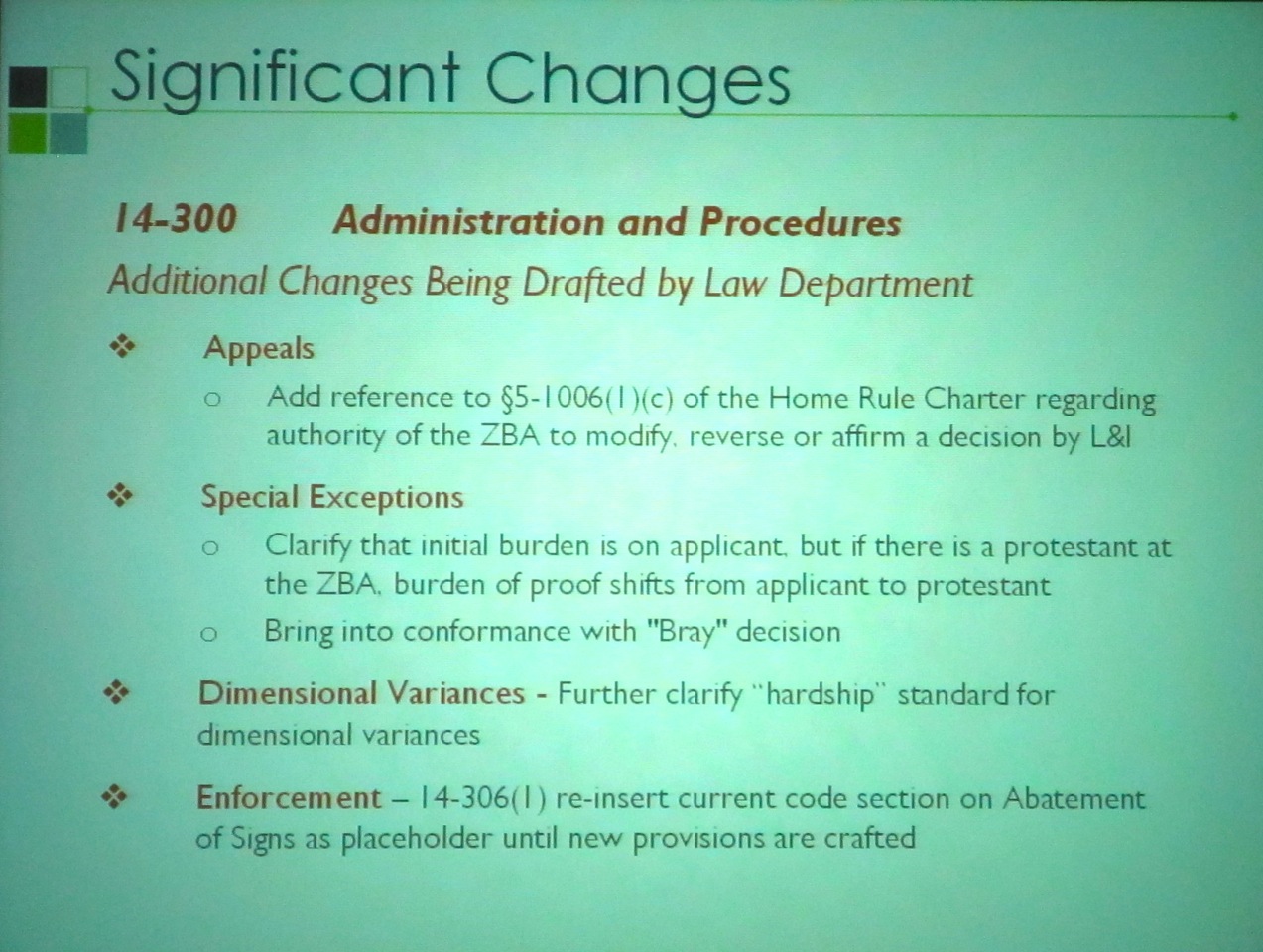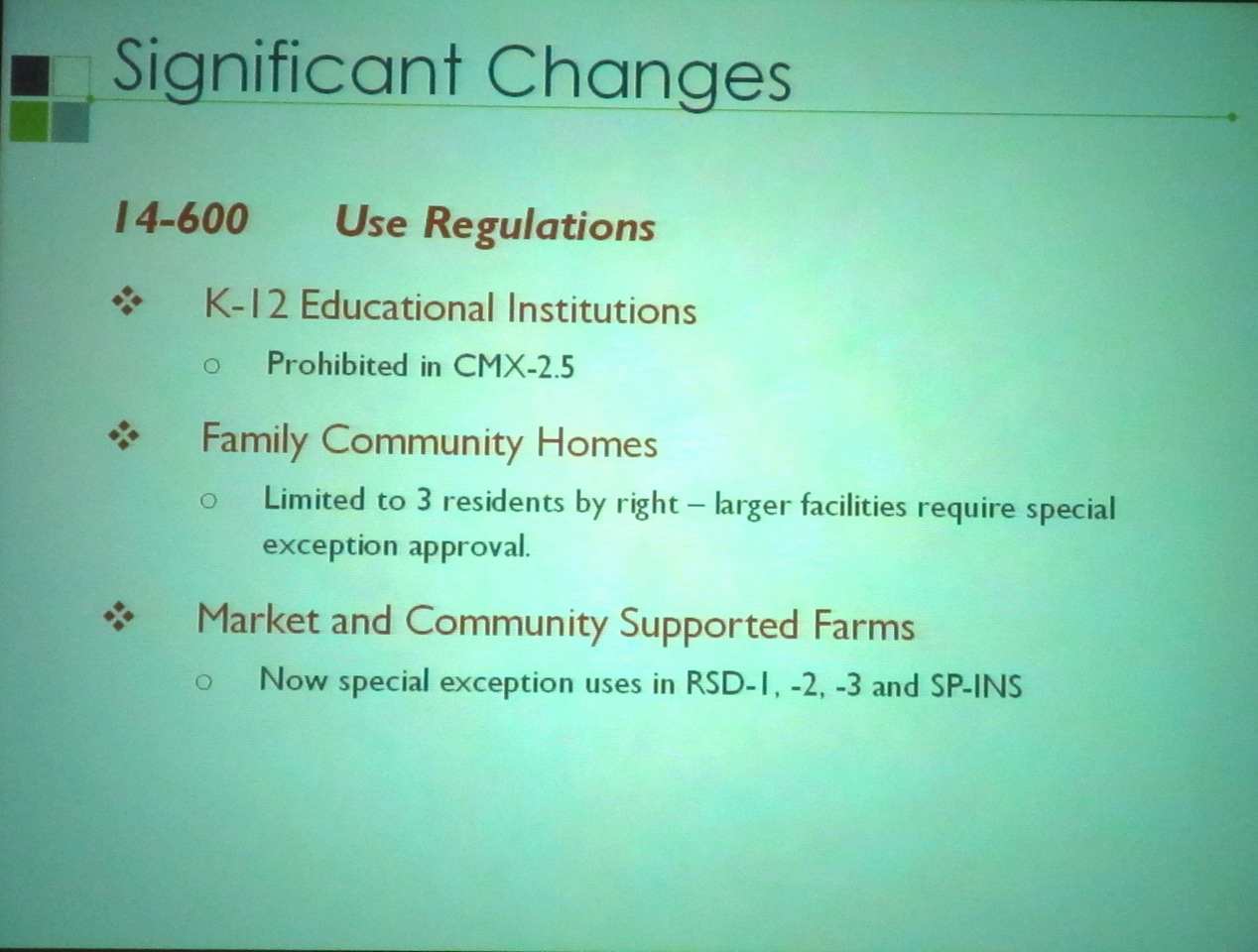ZCC meeting: Time runs down, temperature heats up
As the time for debating Philadelphia’s revised zoning code before the Zoning Code Commission winds down, tensions about deadlines, feedback to the commission, and who’s been on the zoning ball boiled over during Wednesday’s ZCC meeting.
The ZCC has twice planned for a vote–for January 26, and then again for Wednesday’s meeting–on whether to send a preliminary report to City Council. Both times, the vote has been delayed.
Deputy Mayor Alan Greenberger said that Councilman and Zoning Code Commissioner Bill Green and the Crosstown Coalition–a group of neighborhood civic associations representing most Center City neighborhoods and a handful of others–requested a delay of the ZCC vote scheduled for Wednesday. That vote is now planned for the next meeting of the ZCC, tentatively scheduled for February 23, although ZCC Executive Director Eva Gladstein said that vote may take place a week later, to ensure a sufficient number of commissioners can attend.
“We are obligated to the city to produce a final report by June 30, 2011,” Greenberger said, and reviewed the process. First, the ZCC will vote on its preliminary report, which sends the draft zoning code to City Council. Council then has 45 days to hold its first public hearing on the matter, although Council is not bound to close those hearings within a particular period. After the close of hearings, if they choose, City Council members have 30 days to pass a resolution sending feedback to the ZCC. Regardless of whether Council passes such a resolution, the ZCC has 60 days from the close of Council hearings to issue a final report—with its final version of the new zoning code and a plan for implementation—to City Council. Then, Council must approve, reject, or table the report.
Greenberger emphasized that the preliminary report likely will lead to further discussion of issues that have already met with much debate at ZCC meetings.
“Probably all of the subjects that various stakeholder groups who feel that they did not get the answers they wanted are probably going to come up again,” Greenberger said, including the triggers for civic design review (CDR), the timeline for neighborhood meetings, development standards, and dimensional standards in rowhouse neighborhoods.
ZCC Executive Director Eva Gladstein distributed full “blue-line drafts”—reflecting the most recent changes to the code—to the commissioners. The commission also re-reviewed the civic engagement process, emphasizing the high level of community involvement, and Commissioner Ann Papageorge reported on last week’s ZCC meeting with City Council.
“I felt that those [councilpeople] present were ready to move this forward into the next stage,” Papageorge said.
Peter Kelsen, who chairs the ZCC’s work plan committee, then introduced lead consultant Don Elliott’s presentation of revisions to the code.
“Those of you who’ve been here long enough know that at one point these presentations were quite long and they’re getting shorter, because the number of things that have changed that need to be discussed is getting shorter every time,” Elliott said.
The bulk of the changes were from section 14-300: Administration and Procedures, and many others clarified provisions. But a few of these might raise some hackles. Some highlights:
• In CDR cases, advisory opinions will be issued in writing; when CDR is required by L&I, the applicant has seven days from L&I’s decision to notify registered community organizations (RCOs).
• Language about protecting property rights has been deleted because case law covers it.
• RCOs who appeal decisions to the Zoning Board of Adjustment (ZBA) get a free transcript of ZBA proceedings.
• Zoning permits are time-limited, but the issuing body (normally L&I) can grant a one-year extension; however, the issuing body must extend a permit if state law requires it.
• The city’s law department is clarifying language on appeals, to properly reflect the authority of ZBA as delineated in the Home Rule Charter.
• For uses requiring special exception approval, the burden is on the applicant. But if somebody objects to the use at a ZBA hearing, the burden shifts to the person objecting to the use.
• The Central Delaware Overlay, which has dropped in and out of the revised code, is back out. According to Elliott, the Delaware River Waterfront Corporation asked that the carryover be deleted, and reserved with a placeholder for master plan zoning standards that DRWC promised are soon to come.
• Market and community-supported farms are now permitted in single-family detached housing districts and in institutional districts by special exception.
• The required dimensions when subdividing lots in areas with small lot sizes has been revised again. In RSA-5, lots of 1,600 square feet or greater surrounded by lots of 1,000 square feet or fewer, may be divided into 800-square-foot lots. In RM-1, lots of 1,920 square feet or greater surrounded by lots of 1,000 square feet or fewer may be divided into 960-square-foot lots. In both cases, lot widths must be 16 feet.
Finally, the current sign regulations have been reinserted into the draft zoning code. Although revisions to the sign regulations will be handled separately from this draft of the zoning code, much of the discussion among commissioners and a portion of the public comment period focused on the need to address signs.
“When the explanation of signage, that that was being pushed back because it was the most difficult issue, there were there were council members that were rolling their eyes,” Councilman and Zoning Code Commissioner Brian O’Neill said of last week’s ZCC briefing at Council. According to O’Neill, a number of Council members had asked him about the timeline for dealing with sign regulations.
“Our intention is to have it done during the six months, more or less, between the enacting and the effective date of the code, and we would bring that chapter back to Council,” Greenberger said.
As questions about signage picked up, Elliott tried to jump on the sign grenade.
“When we negotiated our contract to do this, I was the one who pushed to keep it out to keep zoning on track. The city pushed to say, ‘No Don, we want you to do it.’ I said, guys—no offense to anybody—the sign industry will hold the code hostage to this. You will get so much detailed discussions, and there will be leverage from neighborhood groups who want to have not signs, or industries who want to have huge signs, to use this group and this code as a battleground for their position,” he said.
Papageorge mentioned that the current process for sign approval is very long for those who need to go through it, and O’Neill said he was concerned with zoning cases that begin with sign issues, and turn into full variance hearings.
“People shouldn’t think that signs have been relegated to the back burner,” Kelsen said. “It is not being ignored.”
But in the public comment period, Stephanie Kindt and Mary Tracy from SCRUB both expressed concerns about tweaks to sign language that had already happened in the code. Kindt focused on the definition of accessory signs to include digital signs; Gladstein replied that the language about digital signs had been removed from the draft revision. After Tracy gave her feedback, Greenberger asked her to submit specific worries and said that they’d be examined.
Even after the ZCC’s extensive civic engagement process—required only to hold 10 public meetings, it has held many more—representatives of both community and business interests expressed ongoing concerns not only with the code, but the process by which those concerns were addressed.
Penelope Giles, of the Francisville Neighborhood Development Corporation, raised a number of issues specific to supporting the redevelopment of Ridge Avenue, which she hopes to see redeveloped as a strong commercial corridor. She expressed concern about only one meeting being required in cases where developers or property owners must meet with RCOs, and the timeline in which that meeting must be held. That worry underpinned a great deal of other community input during Wednesday’s meeting.
Tim Kerner of Center City Residents Association objected to the 21-day timeline for required meetings between RCOs and developers, because many neighborhood organizations operate on a monthly schedule. “A developer will call Center City Residents Association and say, ‘I want a meeting, and if it’s not within 21 days, I will now go to the Zoning Board with the assumption that you approve of my project.’ So our calendar is out there, and a savvy developer could decide to call us 22 days in advance, and schedule a meeting. So what do we do?” Kerner said. The code assumes that, if a meeting is not held, the relevant RCOs do not object to the development.
M. Shikomba, of the Concerned Citizens of Point Breeze, are took issue with the timeline and the requirement for only one meeting. “We feel that is not conducive to neighborhoods. We feel that everything you’ve written in this book so far is pro-developer and anti-neighborhood,” Shikomba said, while expressing her worry about outsized houses being built as infill development in Point Breeze.
Greenberger replied that required RCO meetings are related specifically to CDR, and that typical, by-right infill buildings will not be subject to these meetings. In addition to CDR, RCO meetings are also required for variances and special exception uses.
“I just disagree with your characterization that it’s all pro-development and anti-neighborhood,” Greenberger told Shikomba. “There’s an awful lot in this code that pays specific attention of balancing development with community input. It’s there, it’s complicated reading, but it’s still there.”
Commissioner Emanuel Kelly jumped in, reminding Shikomba and others that the ZCC held numerous neighborhood meetings, including two in Council President Anna Verna’s South Philadelphia district, from which Shikomba’s concerns arose.
“Most people [there] agreed to mitigation,” Kelly said, referring to a required setback of third floors for infill construction amongst two-story homes. “The setback preserves the two-story height, and accommodates the family size.”
Joe Marino, the co-chair of the East Passyunk Crossing Civic Association, implored the ZCC to ensure that community interests were properly reflected in the code.
“Please remember those of us who live in the homes that belonged to our great-grandparents,” Marino said, to brief applause from representatives from other community groups.
“The word balance was mentioned between the neighborhoods and the developers, and I implore you not to seek balance there,” he said. “When you’re dealing with neighborhood concerns and the money behind buildings and developers, you need to lean at least 51 percent our way.”
The ZCC has not given specific reasons—at least not always, and not always publicly—for adopting or rejecting input, which clearly has created unease in some residents and civic associations.
Joe Schiavo, speaking on behalf of both the Crosstown Coalition and the Old City Civic Association, asked for a firmer response than the “previously considered” designation on the most recent set of public comments. He contended that the members of the public attending this meeting represented their own constituents, and that those constituents would not be satisfied that their feedback was rejected without a reason.
“We don’t know when to stop this effort. The points don’t just dissipate when they’re considered,” Schiavo said, a point with which Councilman Green agreed. “People deserve a meting or written response that says why,” Green said.
While Greenberger and other commissioners emphasized that sending the revised code to City Council does not end debate, a sometimes highly contentious public discussion ensued.
The Development Workshop, the Crosstown Coalition, and an ad hoc group of land-use attorneys from the Philadelphia Bar Association joined forces to request a three-month delay to review the most recent draft of the code. Cheryl Gaston, speaking on behalf of the attorneys, sparked a sharp exchange with Greenberger while she argued for more time.
“I’m going to be very careful how I say this,” Greenberger said. “Where have you all been for a year?” Clarifying that he spoke only for himself, and not for the ZCC, Greenberger contended that these groups had enough time to provide feedback.
“I feel that a lot of time—this has been out for a year—a lot of time was wasted on your side not taking this seriously enough, not looking carefully enough, and all of a sudden, ‘I have to read a 400-page document with two weeks to go. That’s simply not the case,” Greenberger said.
Gaston vehemently objected to this characterization, and detailed the feedback provided by her group and others.
“I don’t like to interrupt people, but excuse me,” Gaston said, her voice tightening. “We went through Module 1, we went through Module 2. We went through Module 3. We then went through the consolidated draft in September. We then went through the redline draft and submitted comments with respect to that on January 21. So the idea that we’ve not been around and we’ve not been trying to make comments—and we’ve made detailed comments—”
“Certainly you have in the last four months,” Greenberger interjected.
“Excuse me, that’s not true,” Gaston replied. “We gave you comments on the 21st, we gave you 37 page of detailed comments on every chapter in this redline draft. We gave you before on the consolidated draft, detailed comments. This is not a correct characterization of what we have been doing. Our group has been very much involved.”
Some commissioners disagreed that a longer time frame for comments was necessary.
“This is a draft. It’s not perfect,” Papgeorge said. “It’s not as if there haven’t been various opportunities for constituents to get answer to the issues that have been raised. I think It’s unrealistic to think that every single comment can be answered,” Papageorge said.
Kelly tried to contextualize the most recent round of feedback. “I read all of the comments from the 21st. All of them,” Kelly said. “There were 17. Of that, one hundred fifty were debated before. The new ones that came up for the fist time in bunches were from the Bar Association and the developer group.
“The ones that are listed here are about 24. Half of those have been addressed in an affirmative way today. Six of the Bar Association ones were legal ones that have to be reviewed by the law department, so feedback is here and is in process. So I disagree that we need to re-extend beyond two weeks because it’s not over. I think we can vote for this to go forward.”
Michael Sklaroff, speaking for the Development Workshop, proposed that the three-month delay requested by his group be used by the ZCC to hold weekly meeting with stakeholders, in order to explain its reasons for rejecting input.
Based on the Commissioner’s comments on Wednesday, that request seemed unlikely to be fully met.
Penelope Giles, of Francisville NDC, had the last word, and managed to defuse much of the tension in the room. “I think that yes, we should move this forward,” Giles said. “You guys have done a tremendous job. I applied to be on this committee, and I am glad that you did not select me.”
Nearly everybody in attendance burst out laughing.
Contact the reporter at ngilewicz@planphilly.com
WHYY is your source for fact-based, in-depth journalism and information. As a nonprofit organization, we rely on financial support from readers like you. Please give today.



